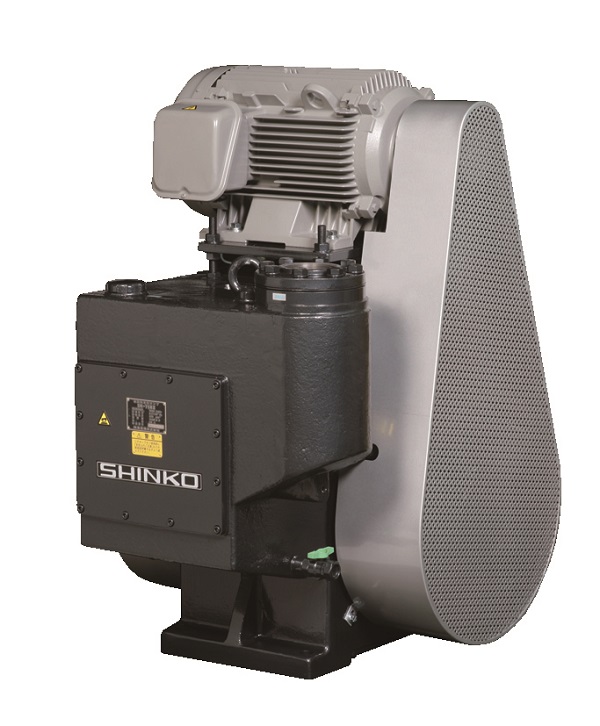A rotary vane pump is a versatile mechanical device used in various industries to create vacuum or move fluids. Known for its efficiency and reliability, this pump is a go-to solution for applications requiring precise pressure control. Whether in manufacturing, automotive, or scientific research, the rotary vane pump plays a vital role in improving operational outcomes.
This article explores how rotary vane pumps work, their benefits, and the industries that rely on them.
What is a Rotary Vane Pump?
A rotary vane pump is a positive displacement pump that uses a rotor with vanes mounted inside a cavity. As the rotor spins, the vanes slide in and out, trapping and compressing the fluid or gas. This design enables the pump to create a vacuum or move fluids with high precision.
Key components include:
- Rotor: The central rotating part that drives the vanes.
- Vanes: Sliding elements that create chambers to transport fluid or gas.
- Casing: The housing that holds the rotor and vanes, ensuring a sealed environment.
How Does a Rotary Vane Pump Work?
The working mechanism of a rotary vane pump is simple yet highly efficient:
- Intake Phase: Fluid or gas enters the pump through the intake port.
- Compression Phase: As the rotor spins, the vanes trap the fluid in compartments, reducing the volume and increasing pressure.
- Discharge Phase: The compressed fluid or gas is expelled through the discharge port.
This continuous process makes rotary vane pumps effective for applications requiring steady flow and vacuum generation.
Applications of Rotary Vane Pumps
Rotary vane pumps are widely used across multiple industries. Their versatility makes them indispensable for tasks like:
- Automotive Industry: Used in braking systems and fuel delivery systems.
- Food and Beverage: Essential for vacuum packaging and sealing processes.
- Healthcare: Found in medical devices like oxygen concentrators and suction machines.
- HVAC Systems: Used in air conditioning and refrigeration units for vacuum pumping.
- Laboratories: Provide a clean vacuum for experiments and analytical instruments.
Advantages of Using a Rotary Vane Pump
Rotary vane pumps offer several benefits that make them a preferred choice for industrial and commercial applications:
- High Efficiency: Delivers consistent performance with minimal energy consumption.
- Compact Design: Occupies less space, making it suitable for tight installations.
- Low Noise Levels: Operates quietly, ideal for environments requiring minimal disturbance.
- Durability: Built to last with robust materials that can handle wear and tear.
- Versatility: Can handle various fluids, including gases, oils, and light chemicals.
Types of Rotary Vane Pumps
There are two primary types of rotary vane pumps, each suited for specific needs:
- Oil-Sealed Rotary Vane Pumps:
- Use oil for lubrication and sealing.
- Provide higher vacuum levels.
- Common in laboratories and medical applications.
- Dry Rotary Vane Pumps:
- Do not use oil, making them eco-friendly and easier to maintain.
- Suitable for clean environments like food processing and electronics manufacturing.
Maintenance Tips for Rotary Vane Pumps
To ensure optimal performance, regular maintenance of rotary vane pumps is crucial. Here are some tips:
- Inspect Vanes Regularly: Check for wear and replace when necessary to maintain efficiency.
- Lubricate Moving Parts: If using an oil-sealed pump, ensure proper oil levels and quality.
- Clean Filters: Prevent blockages by keeping filters clean and debris-free.
- Monitor Performance: Look for signs of reduced efficiency, such as unusual noise or vibration.
- Schedule Professional Servicing: Routine check-ups by experts can extend the pump’s lifespan.
Factors to Consider When Buying a Rotary Vane Pump
Choosing the right rotary vane pump depends on several factors. Consider the following:
- Flow Rate: Determine the volume of fluid or gas you need to move per unit of time.
- Vacuum Level: Identify the required pressure range for your application.
- Compatibility: Ensure the pump materials are suitable for the fluids or gases used.
- Size and Space: Match the pump’s dimensions to the available installation area.
- Energy Efficiency: Opt for models designed to consume less energy without compromising performance.
Rotary Vane Pump vs. Other Pump Types
While rotary vane pumps are widely used, comparing them to other types helps understand their unique advantages:
- Rotary Vane vs. Diaphragm Pumps: Rotary vane pumps handle higher vacuum levels, while diaphragm pumps are better for corrosive fluids.
- Rotary Vane vs. Gear Pumps: Rotary vane pumps offer smoother flow and are quieter than gear pumps.
- Rotary Vane vs. Liquid Ring Pumps: Rotary vane pumps are more energy-efficient, but liquid ring pumps excel in handling fluids with contaminants.
Environmental Impact of Rotary Vane Pumps
As industries move toward sustainability, the environmental impact of rotary vane pumps is a consideration. Many manufacturers now produce eco-friendly models with lower energy consumption and reduced emissions. Choosing a dry rotary vane pump eliminates the need for oil, further reducing the environmental footprint.
Emerging Trends in Rotary Vane Pump Technology
Advancements in technology are driving innovation in rotary vane pumps. Key trends include:
- Smart Pumps: Integration of IoT for real-time monitoring and control.
- Enhanced Materials: Use of advanced materials to improve durability and chemical resistance.
- Compact Designs: Development of smaller, lightweight models for portability.
- Improved Efficiency: Focus on energy-saving mechanisms to reduce operational costs.
Conclusion: Why Choose a Rotary Vane Pump?
A rotary vane pump is a reliable, efficient, and versatile tool for various industrial and commercial applications. Whether you need it for vacuum generation or fluid movement, this pump delivers consistent performance and durability. By understanding its benefits, applications, and maintenance requirements, you can make an informed choice that suits your specific needs.
From laboratories to large-scale manufacturing, a rotary vane pump is an investment that ensures efficiency and long-term value.





